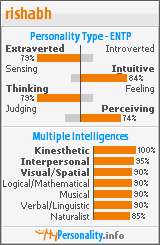Why Internet doesn’t necessarily make me dumb?
When we talk of Internet, we have to talk of the various issues which are viewed negatively with relation to it. For example, Internet is said to be phasing out books, they are said to be curbing the analytical and creative ability of a person etc .Another important point that has comes up repeatedly is that people are simply “awash” with facts and they simply don’t know what to do with it. It is leading to what is being called a problem solving deficit disorder. How these don’t necessarily make us dumb and how in fact Internet does help us be smarter is what will be discussed.
Most people are unequivocal in their support of books, but view the Internet with suspicion. They are blinded by over five centuries of domination by the paper/print paradigm. But books, like the Internet, are not all good or all bad. For example:
- Books made oral memory less important. The basic skills have changed from listening and speaking to reading and writing.
- Books increased the pace of change and this in turn made contemplation less important. This meant that anti-contemplation skills such as skimming, speed reading, etc. became essential.
- Books caused illiteracy. Prior to the printing press, it was not important for most people to be able to read or write.
Every new technology changes what it means to be human and to be educated. These changes inevitably disadvantage certain kinds of people who previously were advantaged and advantage other kinds of people who were previously disadvantaged. Printed books became so ubiquitous because they were cheaper and better than the previous technologies
Similarly, the Internet is fast becoming the most powerful educational environment that has ever existed but it also has the following drawbacks :
- The Internet makes reading and writing less important. Just as speeches were replaced by books, in turn books will be replaced by websites.
- The Internet increases the pace of change and this in turn makes ownership of ideas less important. Internet disseminates information almost instantaneously.
- The Internet causes illiteracy. Prior to the Internet, it was not important for most people to be able to use computers and navigate through information space.
The strength of the Internet is that, as an institution, it exhibits characteristics of policy formation that appeal to one's sense of liberty. What makes the Internet a "good thing" is its anarchical characteristics of policy formation, such as decentralization, consensus, and openness that real world social structures have striven for.
The fact remains that the characteristics making us intelligent – the ability to reason and to learn remains the same and will probably fundamentally never change with technology. Intelligence, practically, is our capacity to adapt and thrive in our own environment. In our environment of a faster more efficient world, to be intelligent is to adapt ourselves to the latest technology, in our case the Internet.
Undeniably, the best feature of Internet is it’s democratization of information. It's providing instant access to information and, in a sense, improving the practical application of intelligence for everyone has resulted in a change in the way people operate.
Like all technological changes, Internet is being met with opposition, what is important to note here is that the points of opposition have remained same since the introduction of the printing press or perhaps even at the onset of the concept of writing as opposed to oral learning. Thus we see that Internet is not as bad as it sounds, in fact it does help in faster transfer of information, dilution of boundaries, decentralization of information and lets us be more efficient as a person.
----------------
Now playing: Metallica - Nothing Else Matters






1 rambles:
Interesting post. [:)]
Post a Comment